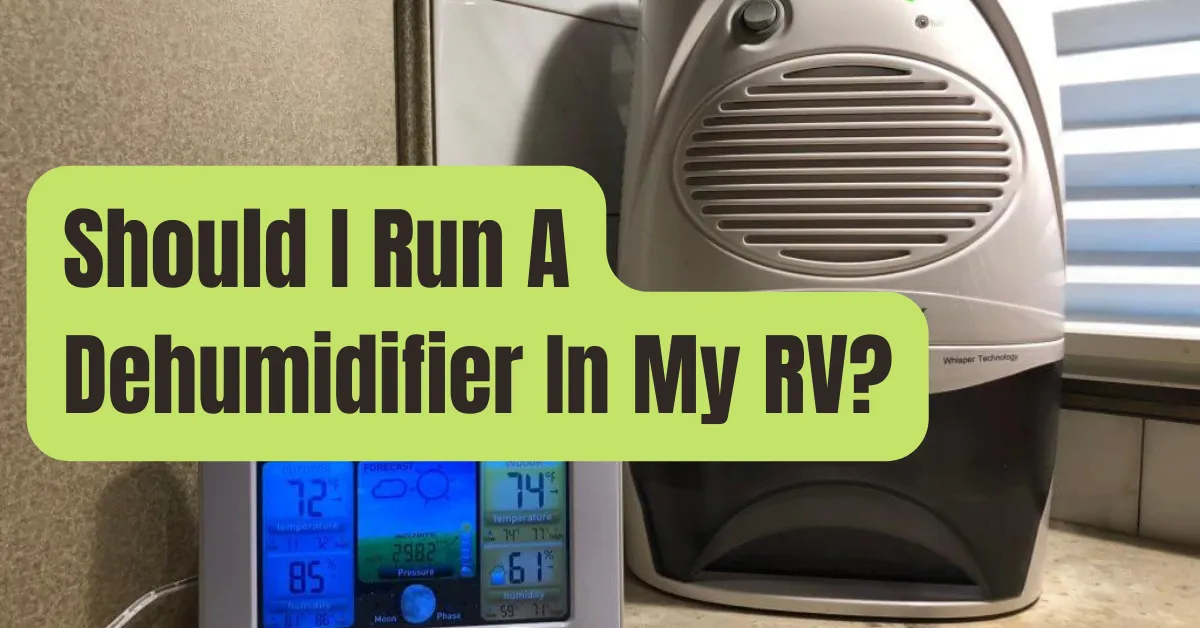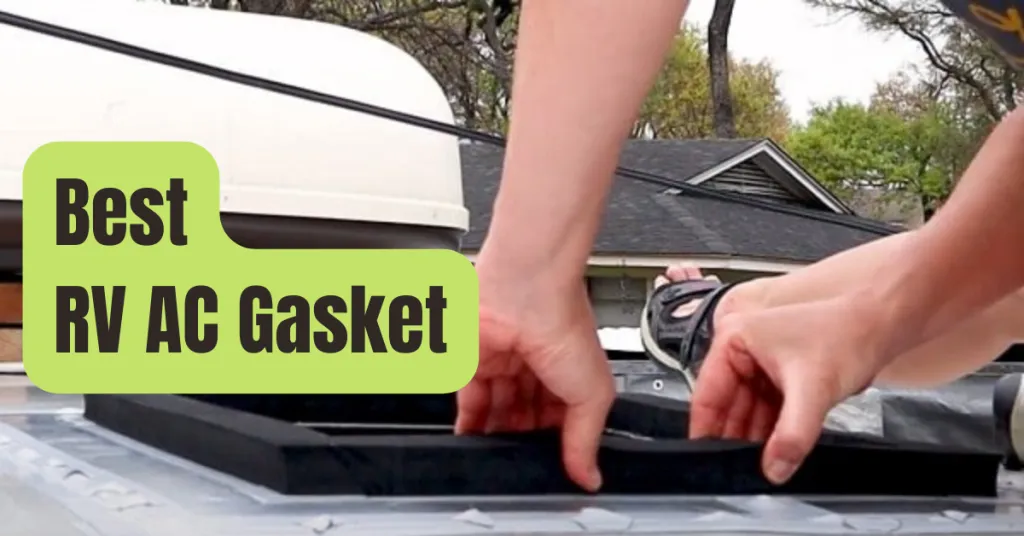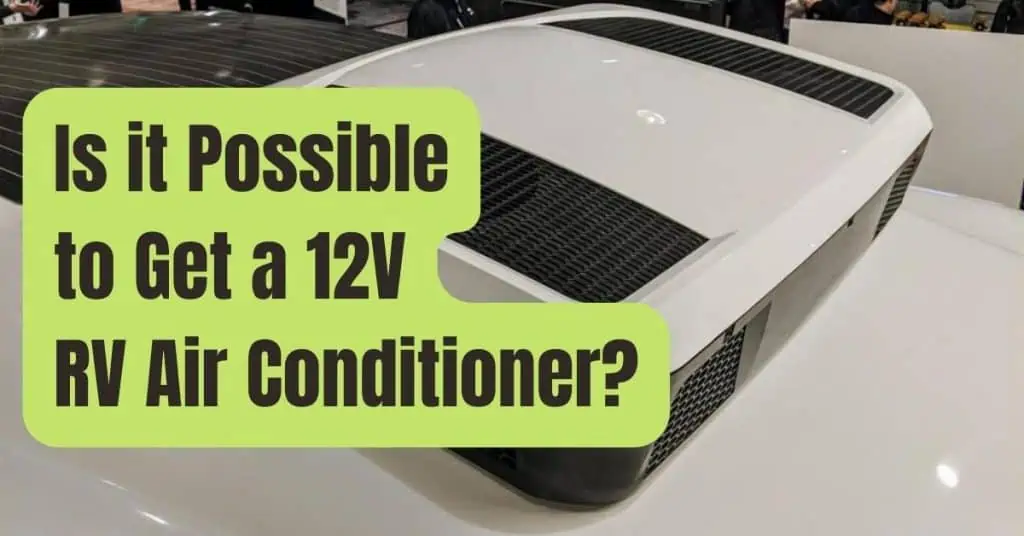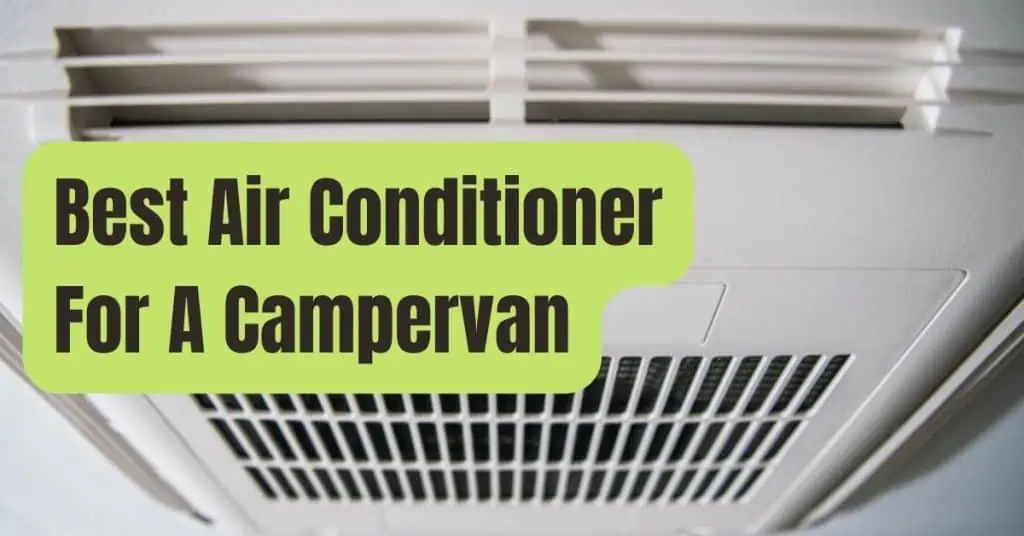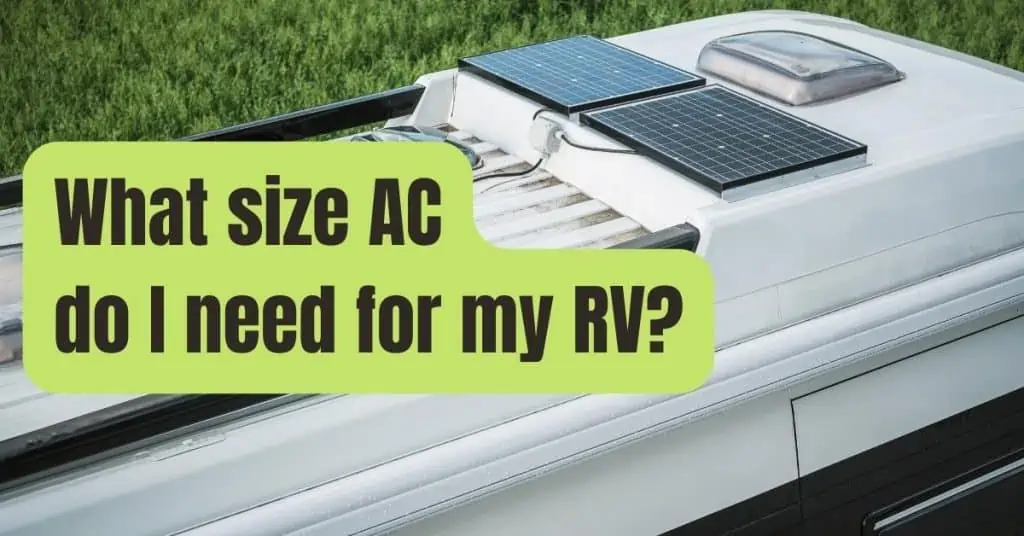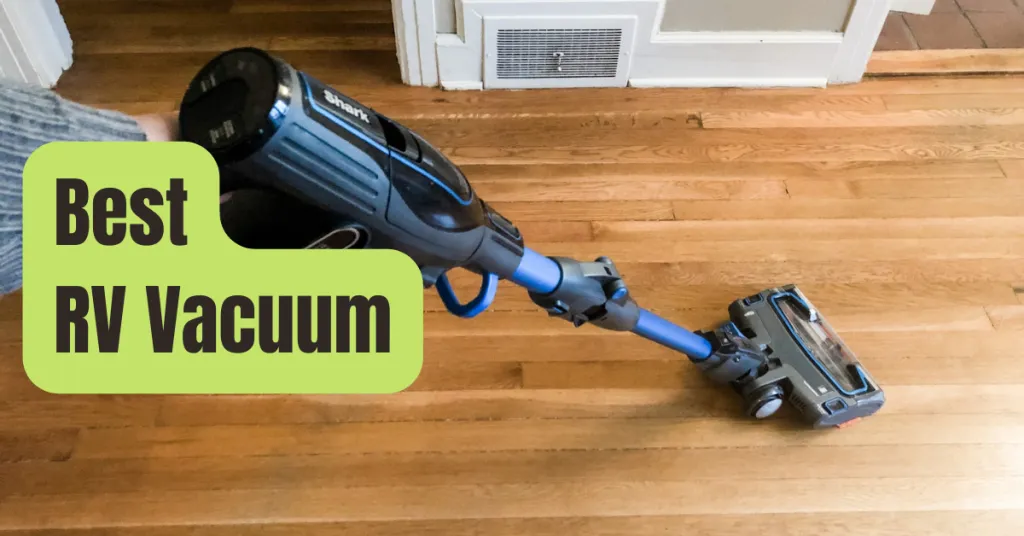When utilizing or spending a lot of time in an RV or camper, humidity is always a concern.
Therefore, in order to resolve this problem, you will want a dehumidifier that is intended to assist you in effectively eliminating humidity from the air within your RV.
You will need a dehumidifier to remove moisture from the air since most RVs have a huge open area that allows for a lot of air circulation and humidity levels to build-up.
Additionally, a dehumidifier may still operate more effectively in your RV’s limited airflow.
Most dehumidifiers employ crystals to collect moisture, and after all of the crystals have attained saturation, they are replaced.
There are four different kinds/types of dehumidifiers available.
a. Dehumidifier with desiccant
b. Dehumidifier with a Heat Pump
c. A DIY dehumidifier
d. Ventilator that removes moisture.
Why Do RVs Require Dehumidifiers?
Consider this: an RV is similar to your little house, right? You will thus spend your time inside your RV cooking, taking showers, or heating water.
As a result, all of these activities will raise the relative humidity in your RV.
Even your breathing and the outside weather may have an impact on the humidity level.
High humidity can make it difficult to breathe if you have asthma or allergies, and it can also irritate your skin and lead to rashes.
And even if you don’t have any of these health issues, your RV will feel uncomfortable and stuffy, which might ruin your trip.
However, having the finest RV dehumidifier available can address these humidity issues by assisting you in avoiding the buildup of impurities like fungus and bacteria.
Since it is not advisable to remove all of the humidity from the air, a dehumidifier cannot assist you.
Instead, it will assist you in keeping the humidity level in your RV between 30% and 50%.
RV dehumidifiers will fill in for vents when ventilation is not an option due to the cold weather.
Another issue is that both electric and non-electric RV dehumidifiers are available, and they both function similarly.
What Will Happen If There Isn’t A Dehumidifier Inside The RV?
You must always have a dehumidifier running in your RV.
If you don’t, your RV will get moist and become intolerably uncomfortable to live in.
You will have a difficult time getting rid of your RV if it gets humid.
As a consequence, your home may get moldy and stuffy, and mold and mildew may begin to grow on your mattress, pillows, drapes, wood, and walls.
It is highly advised that you check the levels of humidity and dampness in your RV since they are a serious issue that not only impacts your living circumstances but also your health.
Therefore, you should check the humidity levels before buying an RV to make sure they aren’t high since failing to do so might result in you having to spend thousands of dollars fixing it.
Additionally, check the ventilation in your travel trailer or RV.
To maintain appropriate air circulation, you may also open the vents on your RV.
Fortunately, you can use a dehumidifier to keep your RV from becoming moist.
Can I Use The Dehumidifier In An RV With The Ac On?
Yes, if your objective is to get faster dehumidification than any device can provide while operating by itself.
Keep in mind that dehumidifiers remove humidity while also gently warming the space.
Your RV is heated during cold days or seasons by an electrical dehumidifier and heat from water condensation.
On the other side, the air conditioner (AC) cools down your RV while working to eliminate humidity.
It produces a cooling effect by cooling the condenser using condensed water from the evaporator.
In general, you should only use an air conditioner when you need cooling and dehumidification, particularly in the summer in a hot, humid environment.
If your RV living space is chilly in the winter, it’s best to merely operate the dehumidifier as you also need some warmth.
What Other Options Are There Except Running The Dehumidifier?
Here are some of the finest dehumidifier options in case the power bill or the cost of purchasing one worries you.
It’s important to keep in mind that the best dehumidifier option will always rely on the sources of humidity, your budget, and the characteristics of your RV.
So let’s have a look at some of the other dehumidifier alternatives.
These techniques aid in keeping RVs free of mold as well (linked article is my previos detailed article on how to keep mold out of camper or travel trailer)
1. Enhance Air Flow
The first step is to increase air flow, which depends on your RV’s windows and vents.
Run a fan, or open the windows if the humidity outside is lower than the humidity inside.
Since ventilation will prevent condensation on walls and floors, this will aid in preventing the formation of mold and mildew on them.
Another option is to get an air conditioner, which will assist you in lowering the humidity levels in your RV.
2. Take Up Moisture
There are several commercial goods available that are designed to absorb moisture from the air.
All you have to do is gather them and put them inside an RV container.
You won’t have any difficulties controlling the moisture levels with the aid of these desiccants.
To determine which container needs to be replaced, make sure you check them once or twice a week.
3. Air Drying
Warming the air will cause the humidity to drop, which will help to dry the air inside your RV.
Warm the air by using a dry heat source, such as a wood burner or space heater.
In order to avoid steam damage to the walls, make sure that the room is not above 95 degrees Fahrenheit.
You may do this by warming the hair while running a fan inside your RV.
4. Employ An Exhaust Fan
Cooking and hot showers are part of RVing.
Additionally, this may cause vapors to condense on the walls and windows of your travel trailer.
The humidity levels will eventually rise as a consequence of this.
Running an exhaust fan is one option you have during such times.
This will assist in expelling the damp air.
Even while it may seem like a little thing to perform, over time it may significantly worsen mold and mildew problems.
5. Use Something Like Damp Rid.
Although I have heard of this product, I have not personally utilized it.
This crystal of calcium chloride aids in removing extra moisture.
This dehumidifier substitute is inexpensive and very effective.
However, if you’re among the RVers who live in an area with significant humidity, better alternatives, like a dehumidifier, are a better choice.
6. Keep items like drying towels out of the RV
This is something you should never do.
It goes without saying that drying wet clothing in an RV will cause vapors and humidity.
This will diminish the effect and cause a variety of issues.
Instead, attempt to use the dryers at RV campsites.
This will prevent any moisture-related problems for your RV.
The Best Dehumidifiers Available For RVs
What alternatives do you have for dehumidifiers? There are several of them, so choose the one that fits your RV and budget the best.
The sort of RV you have will also affect the humidifier you choose to purchase.
A tiny dehumidifier is required for a small pop-up camper or travel trailer.
Here are a few of the top dehumidifiers you can purchase for your camper or RV.
#1. A 4000 Square Foot Dehumidifier From Homelabs
HomeLabs Dehumidifier is the finest choice if you’re seeking for one of the top RV dehumidifiers.
It helps to avoid too much moisture in the air since it has six adjustable settings and a 24-hour timer.
This dehumidifier has touch panel controls with defrost, turbo mode, shut-off, and restart capabilities for convenient use.
Look it up on Amazon here.
Below are some of its important characteristics:
- Its controls are on a touch panel.
- It has six distinct settings built into the design.
- Comprises a 24-hour timer
- It’s transportable.
#2. Pro Breeze Mini Electric Dehumidifier
A wise investment, this dehumidifier has outstanding features and performance.
Pro Breeze Electric Mini dehumidifier is an excellent option if you want to avoid issues brought on by increased humidity levels in your RV or travel trailer.
This dehumidifier can operate between 59 and 86 degrees Fahrenheit, with a minimum temperature of 41 degrees.
Check Amazon for the item’s pricing and reviews.
The following are some of its main characteristics:
- Silent operation
- Compact moisture absorber.
- Uses a little amount of energy.
- Has a little smaller tank capacity
- It’s transportable
- Is capable of extracting up to nine ounces of moisture every day.
- Has a led indicator that signals when the tank needs to be drained.
#3. The Eva-dry E-333 Regenerative Mini Dehumidifier.
Excessive humidity is bad for your RV.
The Eva-dry E-333 Renewable Mini Dehumidifier will provide you a dependable and long-term solution for humidity issues as a result.
This dehumidifier delivers a smooth operation, which means that it is always spill- and mess-free.
Its salient characteristics are as follows:
- Effective and simple to use.
- No spill or leak operations
- Innovative for its use of silica gel
- Can persist for up to 10 years
- Renewable and nonexpensive refills
#4. A 30-Pint Dehumidifier From Frigidaire.
You can manage the humidity levels within your RV with the help of the Frigidaire 30-Pint Dehumidifier in the easiest and most practical manner possible.
If your RV is equipped with this dehumidifier, mold, mildew, and black mold have absolutely no chance.
Its salient characteristics are as follows:
- It operates at low temperatures.
- Is very effective in eliminating humidity for up to 2200 cubic feet.
- It has digital display and simple electrical controls.
- Has a UL/CUL|CSA safety certification.
- It is a dehumidifier with an energy star rating.
How To Choose A Dehumidifier For An RV
The finest dehumidifier for your RV shouldn’t be difficult to find, but one must first describe the necessity in terms of what is listed below.
- Whatever kind of dehumidifier you need.
- Room inside the RV. Depending on the space, the kind of RV—whether a class A motorhome, a class C RV, or a fifth wheel—will differ.
- The dehumidifier’s portability.
- Installation is required.
- The dehumidifier’s noise level.
- Controls it is.
- Tank volume.
- Also there is another great function.
With all of these as your guides, you will choose a helpful and effective dehumidifier for your RV without any difficulty.
Conclusion
You must handle all of these issues if you want to live in an RV or camper full-time.
The effects of humidity might endure for a very long time.
If the humidity is not maintained low, mold or mildew might begin to form in your travel trailer or RV.
If you can maintain the humidity level low without using a dehumidifier, you should.

